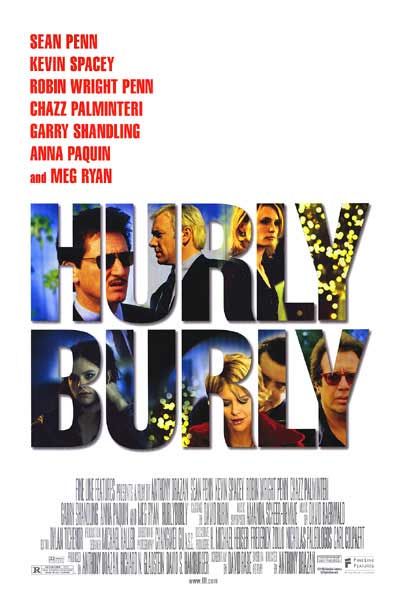
| None | Light | Moderate | Heavy | |
|---|---|---|---|---|
| Language | ||||
| Violence | ||||
| Sex | ||||
| Nudity |
Content:
Pagan worldview combining New Age & moral elements, plus one extended reference to the false religious concept of “karma,” in a philosophical search for meaning, plus strong pagan characters who talk & behave immorally; 139 obscenities & 33 profanities with some sexual vulgarities & discussions about sex & prostitution; moderate but disturbing violence against women including man pushes prostitute out of moving car & man holds teenage woman’s head & shoves her back onto couch, plus man slaps other man several times & man tries to commit suicide by falling into pool; implied fornication & one scene of depicted fornication; rear male nudity, upper male nudity during one sex scene & in shower; alcohol use & abuse; smoking & prevalent cocaine & marijuana abuse; and, strong miscellaneous immorality among pagan characters, such as misogynist attitudes toward women & women seek love and respect from men through sex.
More Detail:
Based on a stage play by David Rabe and starring Sean Penn in an excellent performance, HURLYBURLY is the story of a mixed-up cocaine addict in Hollywood named Eddie, who hangs around with his male chauvinist buddies Mickey, Phil and Artie. Eddie’s three friends appeal to the baser side of Eddie’s character, but sometimes Eddie displays haphazard bouts of conscience about the evil ways he and his buddies treat women. At one point, for instance, Eddie reminds Mickey, to Mickey’s dismay, that they had allowed a prostitute named Bonnie (whom they had hired one night for a Hollywood star) to bring her daughter with her. Eddie also tries to mitigate the violent tendencies of his close friend Phil, a second-rate actor playing minor tough-guy roles, by giving him advice about Phil’s on-again, off-again relationship with his wife. Eddie even establishes a partly stable, though sexually active, relationship with a girlfriend, Darlene. Darlene helps Eddie stay off the cocaine.
After one year, however, Darlene and Eddie’s relationship begins showing some strains. So, when Eddie, Mickey and Artie host a small party for Phil, whose wife has finally divorced him, Eddie starts sniffing the cocaine the others are using, but in bigger quantities than his friends. The cocaine brings out the worst and the best in Eddie. For example, he hires Bonnie the prostitute to help ease Phil’s pain and is unconcerned when Bonnie returns after Phil shoved her out of her car while the car was moving!
Shortly thereafter, he becomes depressed about the lack of meaning and purpose in his life and starts to criticize the media society of which he is a part. In an interesting bit of insight from his drug-induced fog, he remarks that, in the past, people appealed to a “divine onlooker,” but, in today’s world, news anchors, talking heads and politicians use media consultants to make life and death decisions.
Eddie’s philosophical ruminations about life and the existence of God lead to a crescendo when Phil dies in a suicidal car accident. He and Mickey have an argument because Eddie tries to find meaning in Phil’s death, but Mickey says there is no meaning. Mickey believes Eddie is trying to think too much. “We’re all going under,” Mickey says, “so how about a little laugh along the way?” Mickey tells Eddie that neither Phil nor Darlene are worth the pain he is putting himself through. “I don’t have your feelings,” says Mickey. “I have my own and they get me by.” When Eddie asks what kind of friends does that make Mickey and he, Mickey replies, “Adequate friends. It’s not the times that are dark. It’s just you.” This argument and a look at all the bad news on TV drives Eddie to attempted suicide, but his life is spared by a teenage woman with whom he had a previous fling of lust. Although she seems to be an atheist with vague, New Age ideas about an impersonal, uncaring flow of life, she tells him that it is up to him how he feels about all the people, events, issues, and things in his life. The movie ends with Eddie quietly pondering her advice.
As this description hopefully makes clear, HURLYBURLY has a serious philosophical side that brings up important questions about the purpose of life and even the existence of God. Although it doesn’t offer any positive answers, at least it struggles with the deeper malaise lying beneath the perverted sex lives of its characters. The problem, however, is that viewers also have to sit through a lot of foul language, some graphic sexual references in the dialogue, brief scenes of implied and depicted fornication, and images of drug abuse. Thus, even intellectual secular movie critics are rejecting this underrated drama about several unappealing characters.



 - Content:
- Content: 

